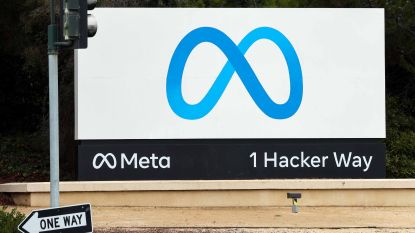Most stocks jumped out of the gate Thursday, as optimism spilled over from Wednesday’s Fed meeting, where the central bank issued its smallest interest rate hike since March 2022.
Solid guidance and big buyback news from Facebook parent Meta Platforms (META (opens in new tab)) – not to mention one of the best days ever for its stock – gave the risk-on rally some legs. The buying power wasn’t widespread, though, as an earnings-induced selloff in drugmaker Merck (MRK (opens in new tab)) kept the blue-chip Dow Jones Industrial Average in check.
The major benchmarks swung higher late Tuesday after the Federal Reserve raised its benchmark interest rate by 25 basis points (0.25%). This followed a 0.50% hike in December and four straight 0.75% increases prior to that. Meanwhile, Fed Chair Jerome Powell said in a mid-afternoon press conference that the central bank will stay the course in its fight against inflation. Still, markets are actually pricing in rate cuts later this year, according to CME Group (opens in new tab).
Subscribe to Kiplinger’s Personal Finance Be a smarter, better informed investor.
Save up to 74%
Sign up for Kiplinger’s Free E-Newsletters Profit and prosper with the best of expert advice on investing, taxes, retirement, personal finance and more – straight to your e-mail.
Profit and prosper with the best of expert advice – straight to your e-mail.
Sign up for Kiplinger’s FREE Investing Weekly e-letter for stock, ETF and mutual fund recommendations, and other investing advice.
On the earnings front, Meta Platforms said fourth-quarter earnings fell 52% year-over-year to $1.76 per share, missing analysts’ consensus estimate. Revenue also declined in the three-month period, to $33.7 billion, though this was higher than expected. The company said it expects operating expenses and capital expenditures to be lower this year due to several cost-cutting measures, including layoffs it announced late last year. Meta also unveiled a new $40 billion stock buyback program. In reaction, META stock surged 23.3% – its biggest one-day gain since 2013.
At the close, the Nasdaq Composite was up 3.3% at 12,200, and the S&P 500 was 1.5% higher at 4,179. The Dow, on the other hand, finished down 0.1% at 34,053 as MRK slid 3.3% after the company gave lower-than-expected 2023 guidance due to falling COVID-19 vaccine sales.
The Best Recession-Proof StocksRecent stock market price action has been a welcome relief for investors following a turbulent 2022. Still, many market participants remain bearish early on in 2023, according to the results of Morgan Stanley’s individual investor pulse survey (opens in new tab). The majority of respondents (55%) listed inflation as the top risk to their portfolios, followed by recession risk (49%) and market volatility (44%).
“It’s been a challenging market environment as investors navigate through high inflation, geopolitical concerns and recession fears,” says Mike Loewengart, head of model portfolio construction at Morgan Stanley. “While these challenges aren’t likely to disperse anytime soon, it’s important for investors, where appropriate, to remain committed to their plan and consider the diversification of their portfolio. Moving money to the sidelines may sound tempting, but for investors with a lengthier time horizon, staying the course may be beneficial in the long run.”
Fortunately for investors, there are solid portfolio choices they can make to help maneuver potential upcoming market challenges. These include choosing the best dividend stocks, as well as the best stocks for rising interest rates. There’s also this list of top recession-proof stocks, which include high-quality companies that are well-positioned to traverse an economic downturn.
